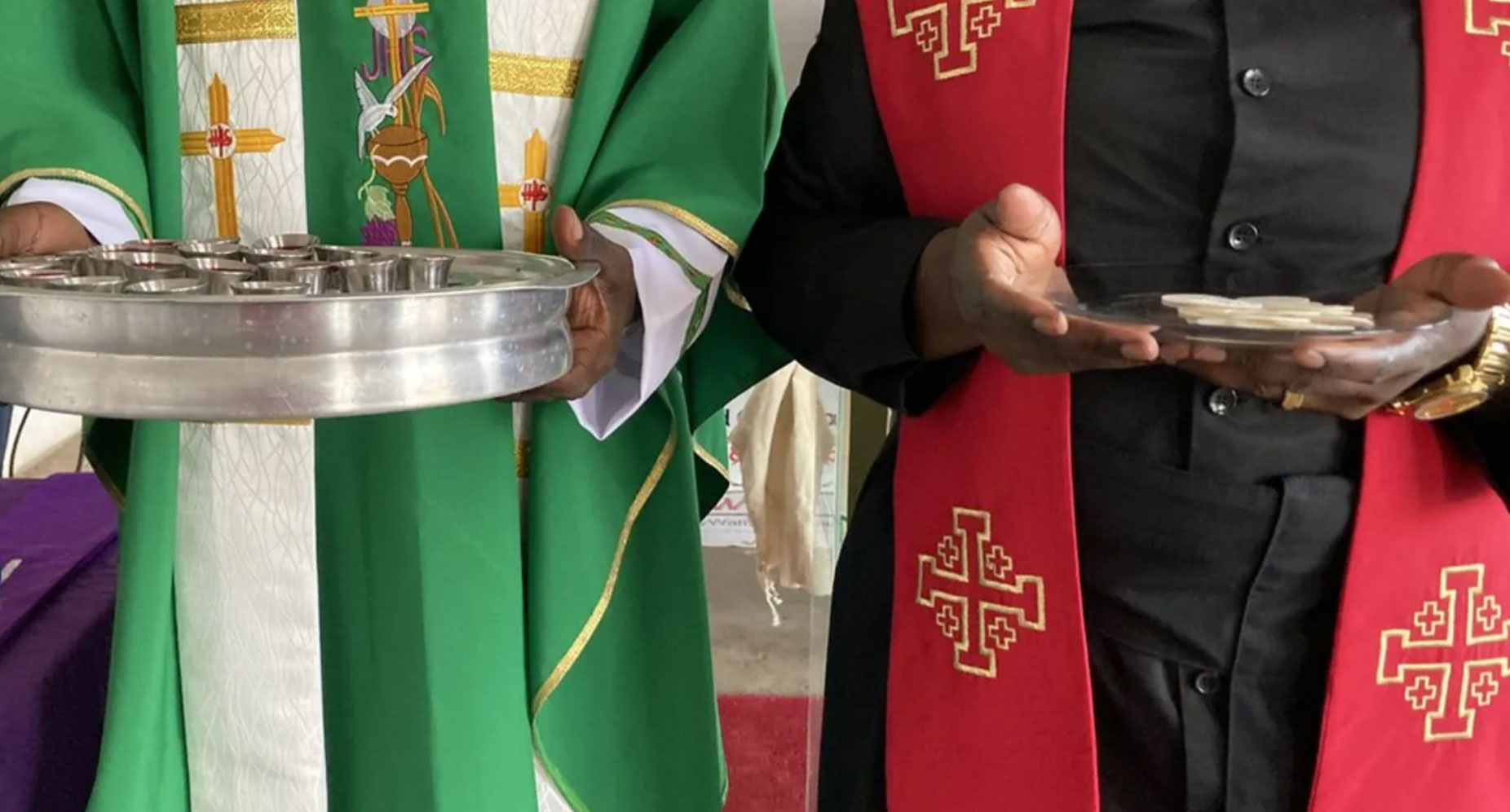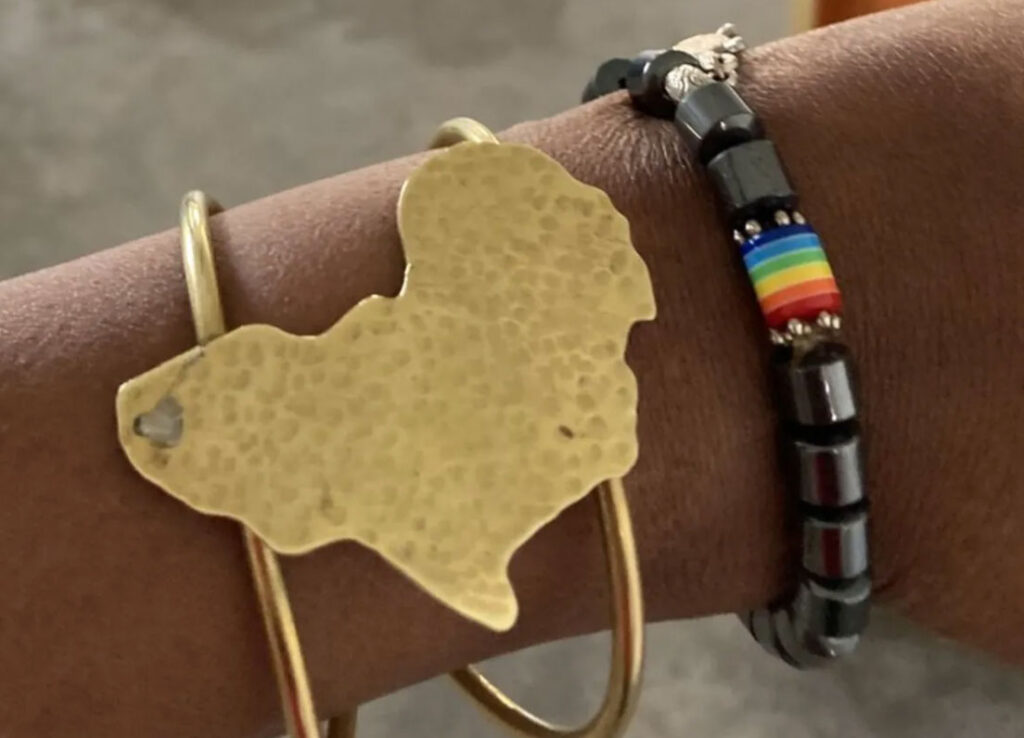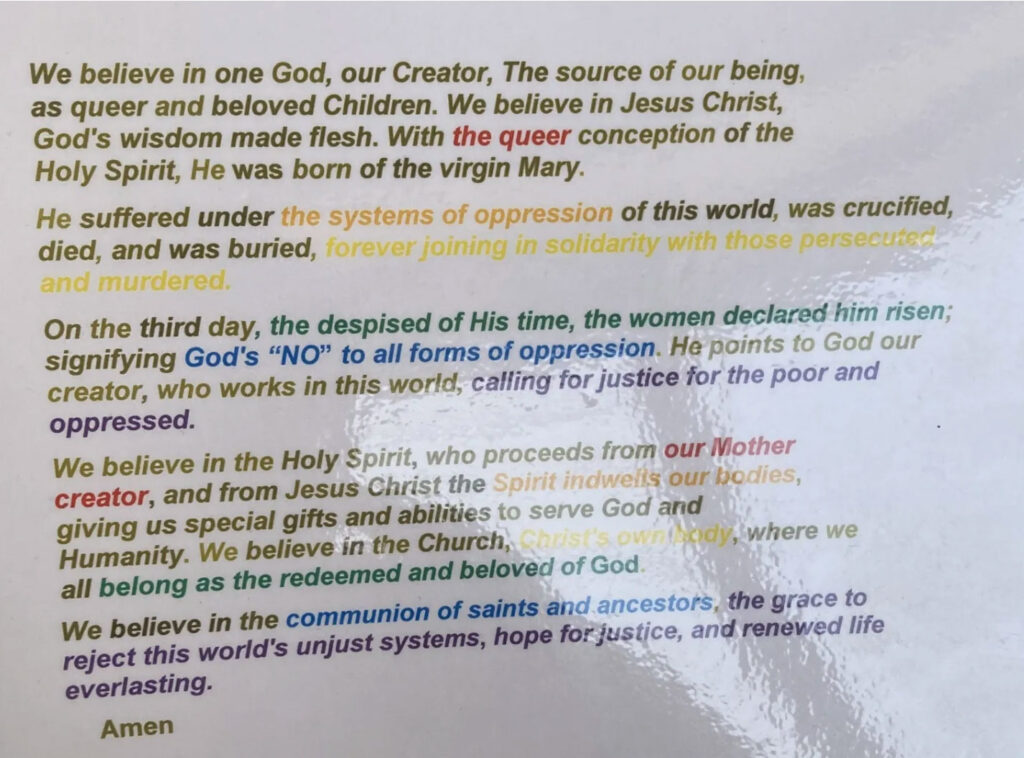Secret LGBT-friendly church welcomes and protects Kenyan worshippers
Colin Stewart is a 45-year journalism veteran living in Southern…
Creed of LGBT-friendly church declares God ‘the source of our being as queer and beloved children.’

For the past ten years, a secret church in Kenya has been worshipping God, welcoming LGBT members and proclaiming the value of queer people’s lives.
The church’s version of Christians’ traditional Apostles’ Creed begins, “We believe in one God, our creator, the source of our being as queer and beloved children.”
It states that Jesus Christ was born of the Virgin Mary through “the queer conception of the Holy Spirit”. In his death, the creed states, Jesus joined “in solidarity with those persecuted and murdered”. His resurrection signifies “God’s ‘NO’ to all forms of oppression,” the creed adds.
The BBC tells the story of this LGBT-friendly church:
Kenya’s discreet church set up to welcome LGBT worshippers
A church in Kenya has survived for the last decade by operating discreetly. It does not publicise its services in this very religious country because it welcomes gay worshippers.
“The first time I entered the church I cried,” John, a pastor initially ordained in a mainstream church, told the BBC. [All names in this article have been changed to protect people’s identities.]
John left his parish because church leaders told him his sexuality was sinful and that he needed to remain celibate.
“I never imagined in my life as a priest, I would be in a space where I would say three words that people think are conflicting. That I am black, I am gay, I am a priest.”
He found out about the church, where he now preaches, on social media – though most find their way there via word of mouth. Like all those interviewed at the church, his name has been changed to protect this identity.
Its members are very guarded too about sharing details of their gatherings – those wishing to join are carefully vetted before being invited in, to make sure it is not a trap or someone malicious.
The understanding with all congregants is that security and safety are paramount.
Gay sex is illegal in Kenya, a socially conservative society, though this year the Supreme Court overturned a ban on gay and lesbian organisations being able to register as non-governmental organisations.

When I join a service on a warm and breezy Sunday, music drifts from the room of a nondescript building.
People begin trooping in and it fills with 30 or so people.
“We are about to begin. Shall we close our eyes and meditate,” says Pauline, a minister in a long black robe and crimson red scarf. The whole room hushes.
Pauline is an openly non-binary lesbian, who uses “they” and “them” as personal pronouns, and is one of the church’s founders. Initially it was just a few friends coming together to offer each other support.
“When you are removed from a space [church], there is an urge to know if anyone else has been excommunicated,” says Pauline, who was not excommunicated but never felt accepted at mainstream churches.
“We wanted to meet other queer Christians who affirm themselves.”
Those attending the church have learnt it is possible to be proud of being African, a Christian and being gay
A feeling of alienation had dominated Pauline’s life, especially since their father died of HIV/Aids when they were 12.
“After my dad died, people started treating us differently. They thought we all had HIV. My mum would be served in different cups and plates and we stopped being allowed into some spaces. Church was one of the places we couldn’t visit because people believed my mum was ‘dirty’,” says Pauline.
Such ostracisation became a pattern, with every church seeming to question some aspect of Pauline’s life – whether it be how they dressed or why they chose not to be perceived as being in a conventional relationship.
So Pauline and their friends started meeting on Sundays to watch sermons on YouTube while reaching out to other LGBT Kenyans as well.
It was at the time that anti-gay rhetoric was growing in East Africa. Neighbouring Uganda was beginning to debate introducing a draconian new anti-homosexuality law – that has since been further tightened.
Little did they imagine that, 10 years on, their little gathering would have grown to include more than 200 members.
Most of them have felt obliged to leave their previous places of worship.
For Regina, it followed a dramatic confrontation with a fellow volunteer – part of a team that organised events at her church.
The team gave her an ultimatum when the volunteer found out that she had a girlfriend: her or them.
“It felt like betrayal. I had mentored some of them and now, I couldn’t be a part of them any more. Here were people who couldn’t extend grace for people to be different,” she says.
Regina chose her girlfriend. A decade later, yearning to reconnect with her Christian faith and a community, her journey led her to the queer-affirming church.
“There was a time I felt like I had no access to God. All I’d ever heard was that I was a sinner. If prayer is a way of talking to God, how then could I pray? Coming back into a community of faith has allowed me to let go of past hurt,” she says.
After 10 years the church now has more than 200 members
Yet it is not always easy for the congregation, which has faced numerous attacks – for instance when a landlord or those in the surrounding community are not happy with the fact they accept LGBT worshippers.
They have been locked out of premises despite paying rent, their compound ransacked, members attacked and police have asked for bribes to offer them “protection”, or threatened to beat and arrest them.
They have changed locations nine times in their 10 years of existence, partly to keep their location a secret.
Arguably, however, one of the hardest hoops to jump through has been helping members reconnect with their faith and a liturgy that they feel has sought to exclude them.
The church, for instance, has its own version of the Apostles’ Creed, which is recited by the congregation during a service, usually starting with the words: “I believe in God, the Father almighty, creator of heaven and earth.”
It goes on to detail the tenets of their faith.
“We all loved the normal creed, but there were things that were missing,” says Pauline.
“Women are not recognised and as queer children, we also had to put ourselves in the creed. We see God the father as well as the mother. It affirms everyone.”
The first line of their creed reads: “We believe in one God, our creator, the source of our being as queer and beloved children.”
The church’s schedule is also flexible, as some worshippers are not open about their sexuality to family and friends, so attend mainstream churches before joining its service later.
“When we started out, everybody was insecure and silent about their traumas,” says Pauline.
This inspired “Chat and Chew”, a discussion forum that allows worshippers to unburden themselves about navigating life as LGBT Kenyans.
“After the service, many people would seek out the pastors to vent about relationships, rejection by families, homelessness and so many other challenges people face as a result of being queer. So we started ‘Chat and Chew’ to share, cry, hug, motivate each other and heal.”
But with life in Kenya becoming more openly homophobic, Pauline says some members have considered going back into the closet for their safety – though most want the church to keep going.
“When we started, we didn’t think that this space would become so important. But we cannot give up, we have to think of a way forward.
“I want this space to be open to everyone and find a balance where we all respect each other despite our beliefs and traditions.”





